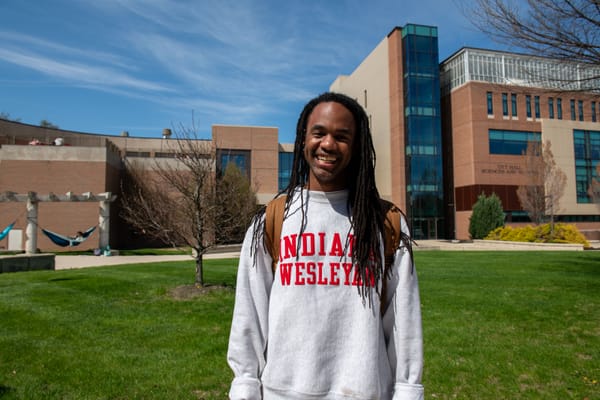The Alliance Gardens: Bees, Produce, and Christian Stewardship
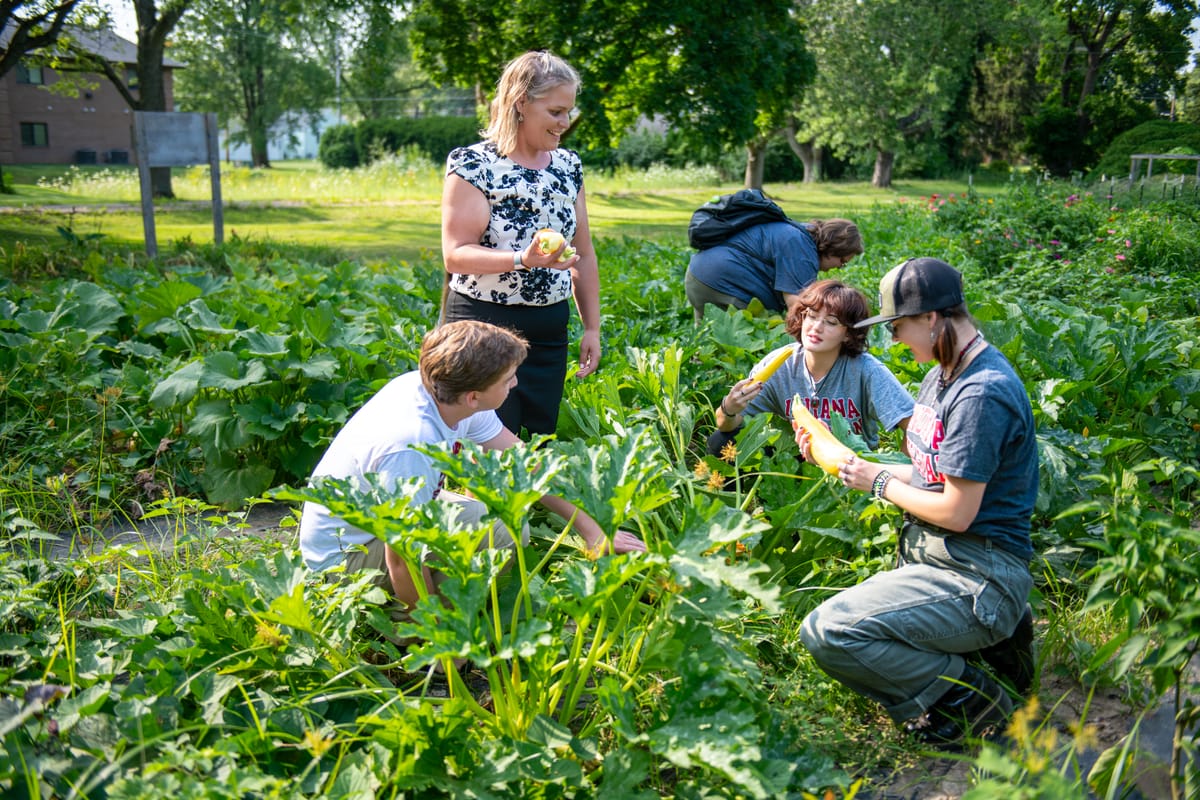
Did you know Indiana Wesleyan University has two gardens on campus? Located on the southern and northern edges of IWU’s Marion campus, the Alliance Gardens are an important and often underappreciated part of the IWU community. Overseen by Dr. Jennifer Noseworthy, these gardens are responsible for four thousand pounds of produce every year as well as a variety of flowers, many of which help provide a habitat for native bees.
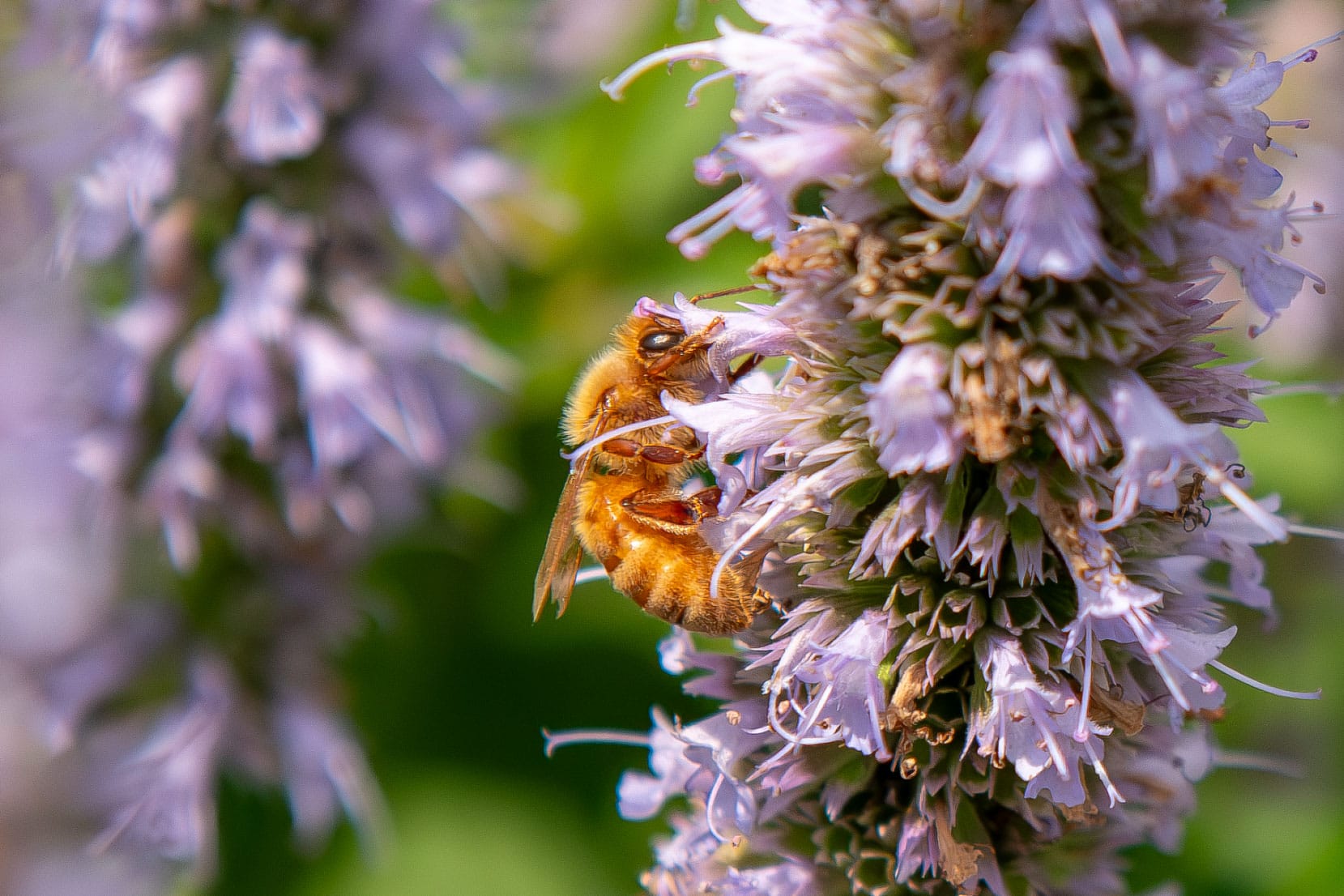
Bee Species, Honey Bees, and Solitary Bees
Although honey bees are well-known for living in hives with queens, most native bee species live in significantly less organized environments, with these male bees and female bees not operating from this same hive structure, and with solitary bees far from uncommon. Some native bees live in the ground while others prefer the stems of plants, and more than a few species make their homes in other parts of their environment. Most solitary bees (these bees range from mason bees to carpenter bees) are in desperate need of these kinds of habitats. It is also worth noting while most bees collect pollen, native bee species are far more effective as pollinators than honey bees are, making them even more important. As a result, the Alliance Gardens are able to provide a habitat for a wide variety of bees as they gather pollen and produce nectar. Because of issues like urbanization, the destruction of habitats, improper pesticide usage, and the environmental effects of non-native species like the honey bee, many native bees, such as Marion’s Rusty Patch Bee, are in decline. This makes the Alliance Gardens’ work to provide an intentional and positive habitat for local bees essential, as it aids in conservation efforts.
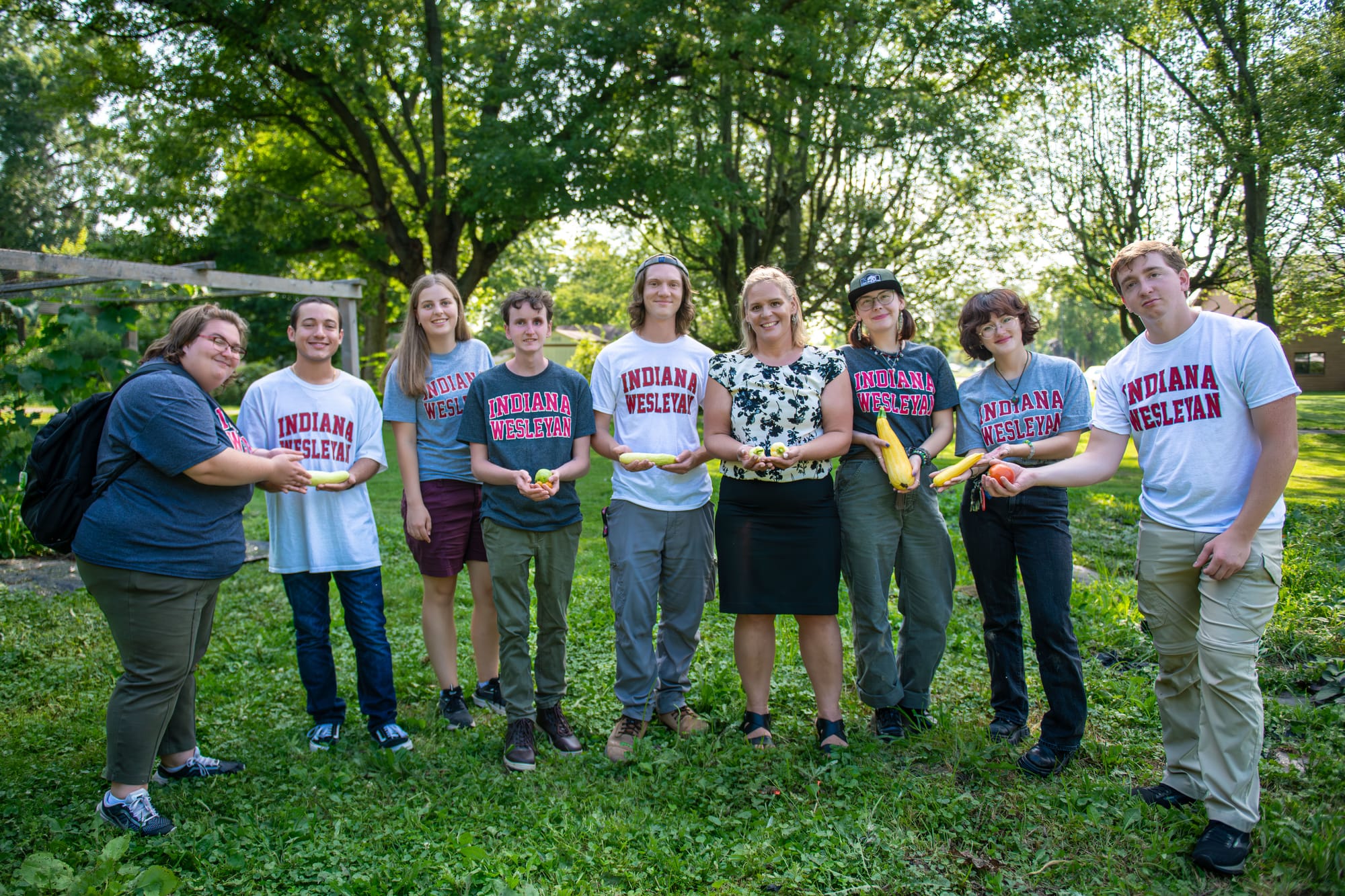
Flowering Plants, Fresh Produce, and Pop-Ups
The other main effort of the Alliance Gardens is its produce—crops grown to provide affordable and healthy food options for those in Marion who need them. This both helps to combat issues of food shortage in Marion, and also emphasizes the value and importance of locally sourced fruit and vegetables. This produce is available in multiple ways: the Farm Box Subscription program allows community members to receive produce every week; participation in the Upland, Fairmount, and Marion Farmers’ Markets provide additional means of purchasing the produce; and the Alliance Gardens donate to Grant County Rescue Mission, Thriving Grant County, Thriving Mill Township, St. Martins’, and Lakeview Wesleyan Church’s Feed the Streets Initiative.
Alliance Gardens will also soon expand its reach by opening pop-up produce stands by bus stops in Downtown Marion a few times per month. Additionally, Alliance Garden produce is now eligible for SNAP, making it even more accessible. Marion, Indiana isn’t a place which many people seek to invest in, and as such Dr. Noseworthy is using her resources and those IWU is able to give her to make a difference in the lives of Marion residents.
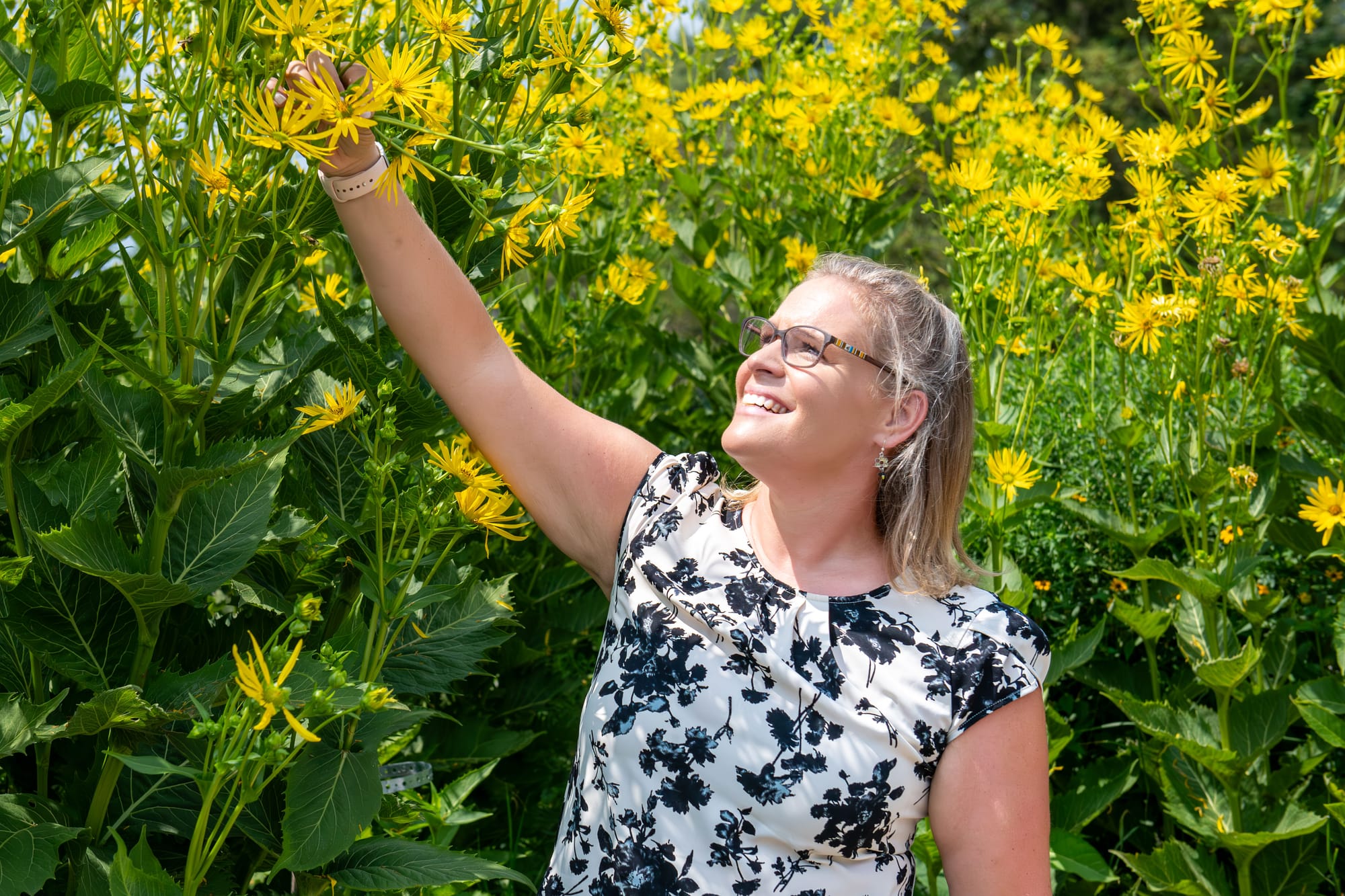
Christian Stewardship, Community, and Ministry
For Dr. Noseworthy, both efforts stem from a desire to model Christian stewardship of creation and community. Working to conserve native bees and combat their decline, seeking to increase local food growth, and providing both food and carefully cultivated flowers for the community are all specific ways Dr. Noseworthy utilizes her God-given skills and the resources at her disposal to make a Kingdom-difference where she can.
Additionally, Dr. Noseworthy’s work is recognized and appreciated to such an extent students from universities across the country come to Marion just to help at the Alliance Gardens. Working at the gardens, they study under Dr. Noseworthy and gain invaluable, practical experience doing hands-on research, conservation, and cultivation work as they learn about sustainable practices for the environment and agriculture. This allows Dr. Noseworthy to use the Alliance Gardens as a way to also demonstrate the care of Christ to students from across the country, many of whom may not know Christ at all.
Over the course of the twelve years since their inception, the Alliance Gardens have operated with ever-increasing success. As current plans continue to unfold for the gardens’ pop-up produce stands as well as established areas of success, IWU is excited to see what the Lord holds in store for both Dr. Noseworthy and the Alliance Gardens. Exciting work is happening at the Alliance Gardens, and Indiana Wesleyan University is committed to helping them create the largest Kingdom-impact possible. To learn more about the Alliance Gardens, visit alliancegardens.wixsite.com/thealliancegardens today!




